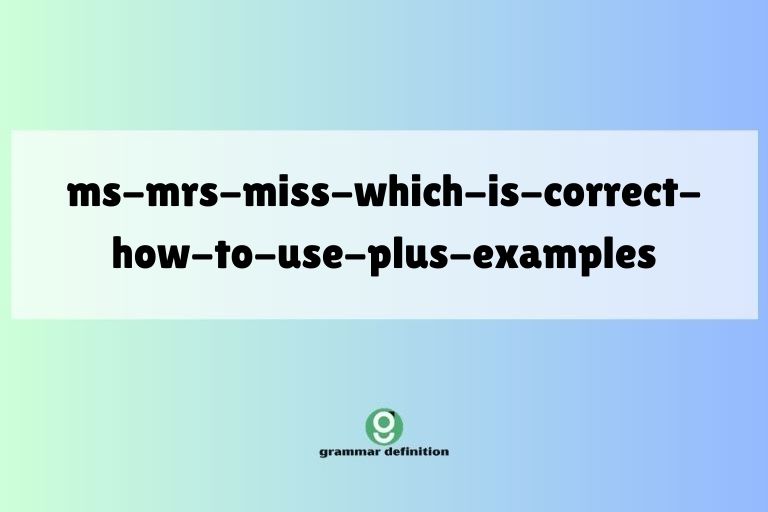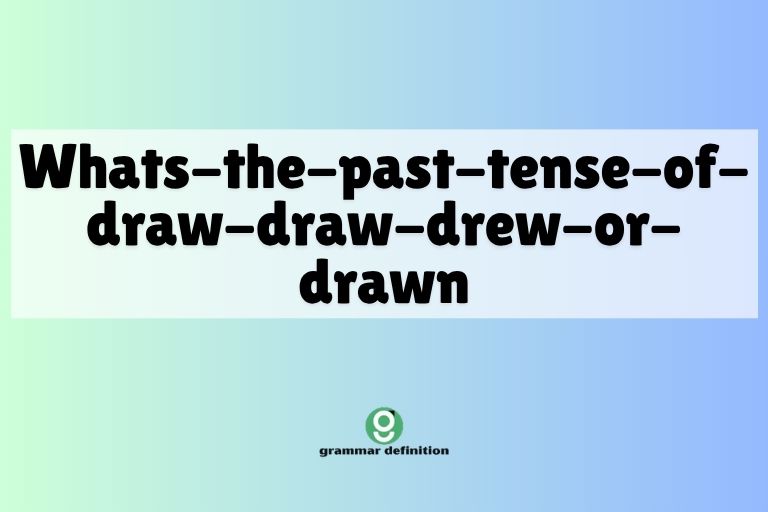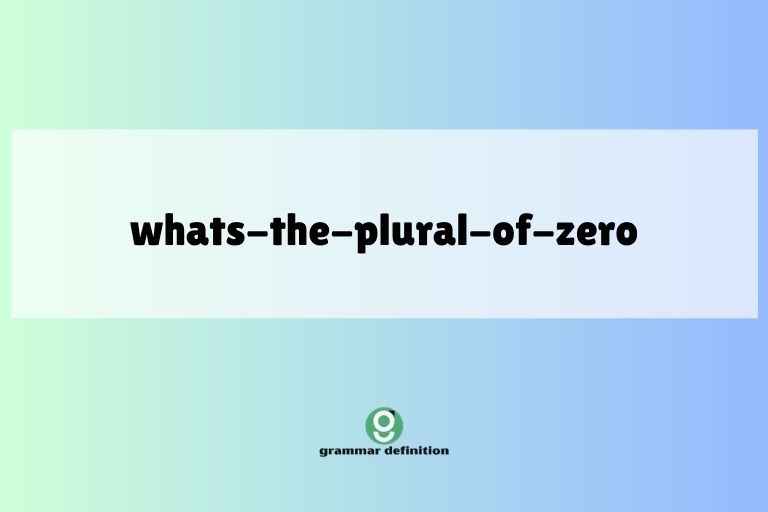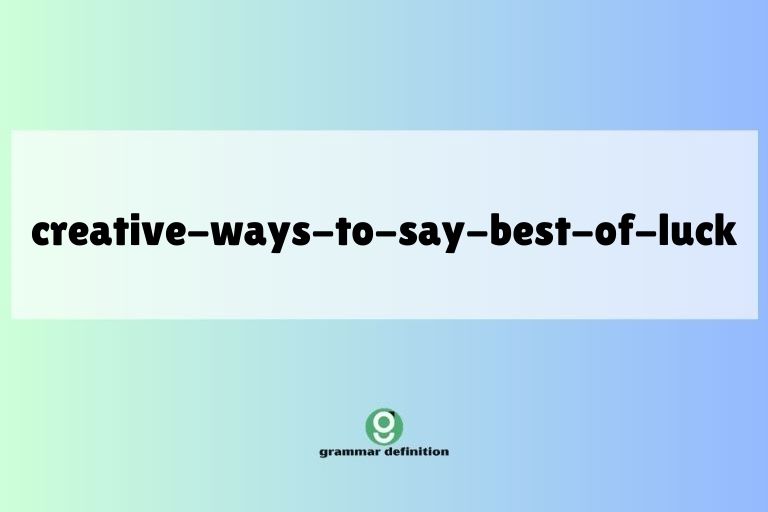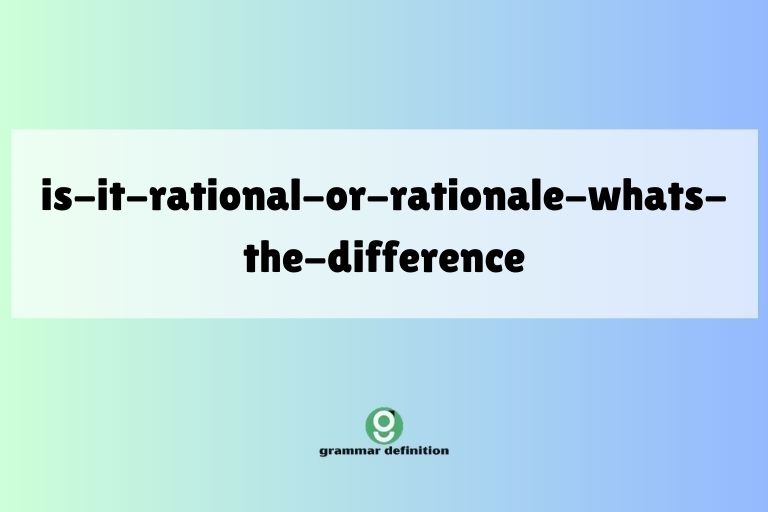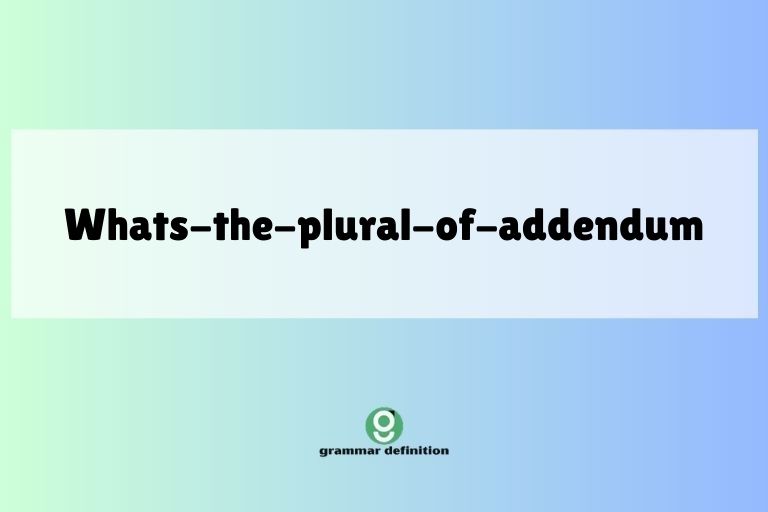Know, Knew, Known: Mastering the Forms of ‘Know’
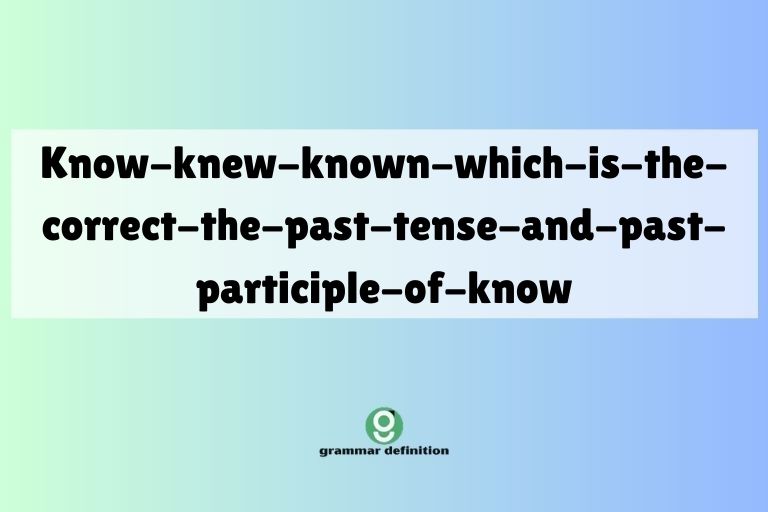
Understanding the different forms of the verb “know” – specifically the base form, past tense (“knew”), and past participle (“known”) – is crucial for constructing grammatically correct and clear sentences in English. This knowledge is fundamental for anyone learning or seeking to improve their English language skills.
Mastering these forms allows you to express actions and states related to knowledge accurately across different time frames. This article provides a comprehensive guide to understanding and using “know,” “knew,” and “known,” complete with definitions, examples, usage rules, and practice exercises.
Whether you are a beginner or an advanced learner, this guide will help you confidently use these verb forms in your writing and speaking.
This article is designed to benefit learners of all levels, from beginners who are just starting to grasp the basics of English grammar to advanced speakers who want to refine their understanding and usage. By the end of this guide, you will have a solid understanding of how to use “know,” “knew,” and “known” correctly in various contexts, avoiding common mistakes and enhancing your overall fluency.
Table of Contents
- Introduction
- Definition of Know, Knew, and Known
- Structural Breakdown
- Types and Categories of Usage
- Examples of Know, Knew, and Known
- Usage Rules
- Common Mistakes
- Practice Exercises
- Advanced Topics
- FAQ
- Conclusion
Definition of Know, Knew, and Known
The verb “know” is a fundamental verb in the English language, expressing the state of being aware of or having information about something. It is an irregular verb, meaning its past tense and past participle forms do not follow the standard “-ed” ending rule.
Understanding the different forms of “know” is essential for accurate communication.
Know
The base form “know” is used to express present knowledge, habitual knowledge, or general truths. It indicates a state of being aware or informed in the present.
The base form is also used with auxiliary verbs like “will,” “can,” “should,” etc., to express future or conditional knowledge.
Function: Expresses present knowledge, habitual knowledge, or general truths.
Contexts:
- Present simple tense: I know the answer.
- Used with modal verbs: I should know better.
- Infinitive form: To know him is to love him.
Knew
“Knew” is the past tense form of “know.” It is used to describe knowledge or awareness that existed at a specific time in the past. It indicates a completed action or state of knowing that occurred before the present moment.
It is used in simple past tense constructions.
Function: Expresses knowledge or awareness that existed at a specific time in the past.
Contexts:
- Simple past tense: I knew the solution yesterday.
- Describing past states: She knew how to play the piano when she was young.
Known
“Known” is the past participle form of “know.” It is used with auxiliary verbs like “have,” “has,” “had,” “is,” “was,” etc., to form perfect tenses (present perfect, past perfect, future perfect) and passive voice constructions. It indicates that something has been learned or understood at some point, or that something is recognized or familiar.
Function: Used with auxiliary verbs to form perfect tenses and passive voice constructions.
Contexts:
- Present perfect tense: I have known her for years.
- Past perfect tense: I had known about the problem before you told me.
- Passive voice: It is known that he is a talented musician.
Structural Breakdown
Understanding the structure of sentences using “know,” “knew,” and “known” involves recognizing the role each form plays within different tenses and grammatical constructions. Here’s a breakdown of how these forms are used structurally:
- Know (Base Form): Subject + know + object/complement (e.g., I know the truth.)
- Knew (Past Tense): Subject + knew + object/complement (e.g., She knew the answer.)
- Known (Past Participle):
- Perfect Tenses: Subject + have/has/had + known + object/complement (e.g., They have known each other for years.)
- Passive Voice: Subject + is/was/are/were + known + (by + agent) (e.g., The truth is known by everyone.)
The object or complement provides additional information about what is known. In passive voice constructions, the “by + agent” phrase is optional and indicates who or what is doing the knowing (in the active sense).
Types and Categories of Usage
The forms “know,” “knew,” and “known” are used in various tenses and voices to convey different meanings. Here’s a breakdown of the main categories of usage:
Simple Past: Knew
The simple past tense, using “knew,” describes a completed action or state in the past. It is used to talk about things that happened at a specific time in the past.
Structure: Subject + knew + object/complement
Examples:
- I knew the answer to the question.
- She knew that he was lying.
- They knew about the surprise party.
Present Perfect: Have/Has Known
The present perfect tense, using “have/has known,” describes an action or state that started in the past and continues to the present, or has relevance to the present. It emphasizes the connection between the past and the present.
Structure: Subject + have/has + known + object/complement
Examples:
- I have known her for ten years.
- She has known about the project since last week.
- They have known the truth for a long time.
Past Perfect: Had Known
The past perfect tense, using “had known,” describes an action or state that was completed before another action or time in the past. It is used to show the sequence of events in the past.
Structure: Subject + had + known + object/complement
Examples:
- I had known about the problem before you told me.
- She had known him for many years before they got married.
- They had known the risks involved in the project.
Passive Voice: Is/Was Known
The passive voice, using “is/was known,” is used when the subject of the sentence receives the action, rather than performing it. It emphasizes the action itself rather than the actor.
The agent (the one who knows) can be included with “by,” but it is often omitted.
Structure: Subject + is/was/are/were + known + (by + agent)
Examples:
- It is known that he is a talented musician.
- The truth was known by everyone in the village.
- These facts are known to the researchers.
Examples of Know, Knew, and Known
To further illustrate the usage of “know,” “knew,” and “known,” let’s look at a variety of examples in different contexts.
Examples of ‘Know’
The following table provides examples of the base form “know” used in different sentence structures. These examples cover various contexts, from expressing present knowledge to using “know” with modal verbs.
| Sentence | Context |
|---|---|
| I know the capital of France. | Expressing present knowledge |
| Do you know how to swim? | Asking about a skill |
| She doesn’t know the answer. | Expressing a lack of knowledge |
| We know that honesty is the best policy. | Expressing a general truth |
| They know each other well. | Expressing familiarity |
| I want to know more about this topic. | Expressing a desire to learn |
| He needs to know the truth. | Expressing a necessity to learn |
| You should know better than to do that. | Expressing a reprimand |
| I will know the results tomorrow. | Expressing future knowledge |
| Can you know what he is thinking? | Expressing possibility of knowing |
| I know him. | Simple present, expressing familiarity |
| We know the way to the park. | Expressing knowledge of a route |
| They know the rules of the game. | Expressing understanding of rules |
| I know what you did last summer. | Expressing awareness of a past event |
| She doesn’t know how to drive. | Expressing lack of a skill |
| We all know that exercise is important. | Expressing a common understanding |
| They know the area very well. | Expressing familiarity with a place |
| I know that you’re telling the truth. | Expressing belief in someone’s honesty |
| He wants to know everything about the project. | Expressing a strong desire to learn |
| You need to know the risks involved. | Expressing a need for awareness |
| I know that feeling. | Expressing empathy |
| We know what it takes to succeed. | Expressing understanding of requirements |
| They know how to handle difficult situations. | Expressing skill in managing problems |
| I know this city like the back of my hand. | Expressing deep familiarity with a place |
Examples of ‘Knew’
The following table provides examples of the past tense form “knew” used in different sentence structures. These examples illustrate how “knew” is used to describe past knowledge or awareness.
| Sentence | Context |
|---|---|
| I knew the answer yesterday. | Expressing past knowledge |
| She knew that he was coming. | Expressing past awareness |
| They knew about the surprise party. | Expressing past information |
| He knew how to fix the car. | Expressing a past skill |
| We knew that it was going to rain. | Expressing a past prediction |
| I knew her when we were children. | Expressing past acquaintance |
| She knew the truth all along. | Expressing past hidden knowledge |
| They knew the risks involved. | Expressing past awareness of risks |
| He knew the consequences of his actions. | Expressing past understanding of consequences |
| We knew that we had to act quickly. | Expressing past understanding of urgency |
| I knew him from university. | Expressing how you knew someone |
| She knew the song by heart. | Expressing memorization |
| They knew the secret code. | Expressing possession of secret information |
| He knew exactly what to do. | Expressing certainty of action |
| We knew that we were in trouble. | Expressing realization of a problem |
| I knew it was a mistake. | Expressing hindsight |
| She knew the city well. | Expressing familiarity with a place |
| They knew the answer, but they didn’t say anything. | Expressing withheld knowledge |
| He knew the importance of hard work. | Expressing understanding of value |
| We knew the location of the meeting. | Expressing awareness of a place |
| I knew something was wrong. | Expressing intuition |
| She knew the value of honesty. | Expressing appreciation of a virtue |
| They knew the terms of the agreement. | Expressing understanding of conditions |
Examples of ‘Known’
The following table provides examples of the past participle form “known” used in different sentence structures. These examples illustrate how “known” is used in perfect tenses and passive voice constructions.
| Sentence | Context |
|---|---|
| I have known her for many years. | Present perfect, duration |
| She has known the truth since yesterday. | Present perfect, starting point |
| They have known each other since childhood. | Present perfect, long-term relationship |
| He had known about the problem before it was announced. | Past perfect, prior knowledge |
| We had known him for years before he moved away. | Past perfect, duration before a past event |
| It is known that he is a talented musician. | Passive voice, general knowledge |
| The truth is now known to everyone. | Passive voice, widespread awareness |
| He is known for his kindness. | Passive voice, reputation |
| She is known as a great leader. | Passive voice, recognition |
| The book is known throughout the world. | Passive voice, global recognition |
| I have always known that I wanted to be a doctor. | Present perfect, lifelong aspiration |
| She has known success in her career. | Present perfect, experienced achievement |
| They have known hardship and loss. | Present perfect, experienced difficulties |
| He had known better than to trust him. | Past perfect, regretful knowledge |
| We had known the risks, but we proceeded anyway. | Past perfect, acknowledged risks |
| It was known that the project would be challenging. | Passive voice, anticipated difficulty |
| The details are known only to a few people. | Passive voice, limited knowledge |
| He is known to be a reliable source of information. | Passive voice, trusted reputation |
| She is known for her contributions to the community. | Passive voice, recognized efforts |
| The painting is known for its beauty and detail. | Passive voice, admired qualities |
| It has been known for centuries that exercise is beneficial. | Present perfect passive, long-established fact |
| The suspect is known to the police. | Passive Voice, familiar to authorities |
Examples of ‘Have/Has Known’
This table focuses on the present perfect tense, illustrating how “have/has known” connects past events with the present.
| Sentence | Context |
|---|---|
| I have known him since we were kids. | Duration of a relationship |
| She has known the answer all along. | Knowledge held since a specific time |
| We have known about the problem for weeks. | Awareness of an issue over time |
| They have known success in their careers. | Experience of achievement |
| He has known hardship and loss. | Experience of difficulties |
| You have known the truth for a long time. | Prolonged possession of information |
| I have always known that I wanted to be a teacher. | Lifelong aspiration |
| She has never known such happiness. | Experience of a unique emotion |
| We have known each other through thick and thin. | Endurance of a relationship |
| They have known the importance of teamwork. | Realization of a value |
| He has known the value of hard work since he was young. | Understanding of an attribute from a young age |
| I have known the challenges of this job. | Personal experience of difficulties |
| She has known the joy of motherhood. | Experience of a fulfilling role |
| We have known the support of our community. | Receipt of communal assistance |
| They have known the benefits of healthy living. | Awareness of advantages of a lifestyle |
Examples of ‘Had Known’
This table provides sentences using the past perfect tense, showing how “had known” describes knowledge before a past event.
| Sentence | Context |
|---|---|
| I had known about the issue before you told me. | Prior awareness of a problem |
| She had known him for years before they got married. | Relationship duration before an event |
| We had known the risks, but we proceeded anyway. | Acknowledged risks before action |
| They had known the truth, but they kept it secret. | Hidden information before disclosure |
| He had known the answer all along, but he didn’t say anything. | Withheld knowledge before an outcome |
| I had known the feeling of defeat before. | Previous experience of failure |
| She had known success in her career before this setback. | Past achievements before a difficulty |
| We had known the support of our friends before this challenge. | Received assistance before a hardship |
| They had known the benefits of their hard work before they retired. | Realized advantages before a life change |
| He had known the importance of education before he went to college. | Understood value before an event |
Examples of ‘Is/Was Known’
This table demonstrates the passive voice with “is/was known,” emphasizing the action rather than the actor.
| Sentence | Context |
|---|---|
| It is known that he is a talented musician. | General knowledge about a person |
| The truth is now known to everyone. | Widespread awareness of a fact |
| The suspect is known to the police. | Familiarity to authorities |
| The cake is known for its delicious flavor. | Reputation for a quality |
| The building is known as the oldest in the city. | Recognition of an attribute |
| It was known that the project would be difficult. | Anticipated challenge |
| The details are known only to a few people. | Limited awareness of information |
| The area is known for its beautiful scenery. | Reputation of a place |
| The story is known throughout the country. | Widespread familiarity with a tale |
| The painting is known for its historical significance. | Recognition of importance |
Usage Rules
To use “know,” “knew,” and “known” correctly, it’s essential to follow specific grammar rules related to tense agreement, subject-verb agreement, and the use of auxiliary verbs.
Tense Agreement
Ensure that the tense of “know,” “knew,” or “known” aligns with the time frame you are referring to. For example, use “knew” for past events and “know” for present or general knowledge.
Correct: I knew the answer yesterday.
Incorrect: I know the answer yesterday.
Subject-Verb Agreement
Make sure the verb form agrees with the subject. For example, use “has known” with singular subjects (he, she, it) and “have known” with plural subjects (I, you, we, they).
Correct: She has known him for years.
Incorrect: She have known him for years.
Auxiliary Verbs
Use the correct auxiliary verbs with “known” to form perfect tenses and passive voice constructions. For example, use “have/has” for present perfect, “had” for past perfect, and “is/was” for passive voice.
Correct: I have known her for a long time.
Incorrect: I had known her for a long time (unless referring to a time before another past event).
Correct: The truth is known by everyone.
Incorrect: The truth has known by everyone.
Common Mistakes
One common mistake is using the wrong form of the verb “know.” For example, using “knowed” instead of “knew” or “known.” Another common mistake is using the present tense “know” when the past tense “knew” is required.
| Incorrect | Correct | Explanation |
|---|---|---|
| I knowed him since childhood. | I have known him since childhood. | Using “knowed” instead of “known” in the present perfect tense. |
| I know the answer yesterday. | I knew the answer yesterday. | Using “know” instead of “knew” to describe a past event. |
| She have known him for years. | She has known him for years. | Incorrect subject-verb agreement in the present perfect tense. |
| He is knowed as a talented artist. | He is known as a talented artist. | Using the incorrect form, “knowed,” instead of the past participle, “known,” in a passive construction. |
Practice Exercises
Test your understanding of “know,” “knew,” and “known” with the following exercises.
Past Tense Exercises
Fill in the blank with the correct past tense form of “know” (“knew”).
- I ______ that I should have studied more for the test.
- She ______ the answer to the riddle, but she didn’t reveal it.
- They ______ about the surprise party, but they pretended not to.
- He ______ how to play the guitar when he was younger.
- We ______ that the weather would be bad, so we stayed inside.
- She ______ the lyrics to every song on the album.
- They ______ the secret password to enter the building.
- He ______ what he wanted to do with his life.
- I ______ the truth, but I chose to ignore it.
- She ______ the way to my heart.
Answers:
- knew
- knew
- knew
- knew
- knew
- knew
- knew
- knew
- knew
- knew
Past Participle Exercises
Fill in the blank with the correct past participle form of “know” (“known”) and the appropriate auxiliary verb.
- I ______ her for many years. (present perfect)
- She ______ about the project since last week. (present perfect)
- They ______ each other since childhood. (present perfect)
- He ______ about the problem before you told me. (past perfect)
- We ______ him for years before he moved away. (past perfect)
- It ______ that he is a talented musician. (passive voice)
- The truth ______ now to everyone. (passive voice)
- He ______ for his kindness. (passive voice)
- She ______ as a great leader. (passive voice)
- The book ______ throughout the world. (passive voice)
Answers:
- have known
- has known
- have known
- had known
- had known
- is known
- is known
- is known
- is known
- is known
Mixed Exercises
Choose the correct form of “know” (“know,” “knew,” or “known”) to complete each sentence.
- I ______ the answer to that question.
- She ______ that he was lying.
- They have ______ each other for years.
- He ______ how to play the piano when he was young.
- We ______ that it was going to rain.
- It is ______ that he is a talented artist.
- Do you ______ the capital of France?
- I have ______ her since we were kids.
- She had ______ the truth all along.
- They ______ the risks involved in the project.
Answers:
- know
- knew
- known
- knew
- knew
- known
- know
- known
- known
- knew
Advanced Topics
For advanced learners, understanding the nuances of “know,” “knew,” and “known” in more complex grammatical structures can further enhance their language proficiency.
Subjunctive Mood
The subjunctive mood is used to express wishes, suggestions, or hypothetical situations. While “know” itself doesn’t directly change form in the subjunctive, it is often used in clauses that express a desired state of knowledge or awareness.
Example: It is essential that he know the truth before making a decision.
Idiomatic Expressions
Several idiomatic expressions use “know,” “knew,” or “known” to convey specific meanings. Understanding these expressions can enrich your vocabulary and comprehension.
Examples:
- “To know something like the back of your hand” – To be very familiar with something.
- “To know better” – To be wise enough not to do something.
- “As is well known” – As is widely recognized or acknowledged.
FAQ
Here are some frequently asked questions about using “know,” “knew,” and “known.”
- What is the difference between “knew” and “known”?
“Knew” is the past tense form of “know,” used to describe knowledge or awareness in the past. “Known” is the past participle, used with auxiliary verbs to form perfect tenses (have/has/had known) and passive voice constructions (is/was known).
- When should I use “have known” instead of “knew”?
Use “have known” (present perfect) when describing a state or action that started in the past and continues to the present or has relevance to the present. Use “knew” (simple past) when describing a completed action or state in the past with no direct connection to the present.
- How do I use “known” in the passive voice?
Use “known” with the auxiliary verbs “is,” “was,” “are,” or “were” to form passive voice constructions. The structure is: Subject + is/was/are/were + known + (by + agent). For example, “It is known that he is a talented musician.”
- Can you give me an example of using “had known”?
“Had known” (past perfect) is used to describe a state or action that was completed before another action or time in the past. For example, “I had known about the problem before you told me.” This means that the speaker was aware of the problem before the other person mentioned it.
-
Is “knowed” ever a correct form of “know”?
No, “knowed” is never a correct form of “know.” The correct past tense is “knew,” and the correct past participle is “known.”
Conclusion
Mastering the use of “know,” “knew,” and “known” is essential for effective communication in English. By understanding their definitions, structural roles, usage rules, and common mistakes, you can confidently use these forms in various contexts.
Regular practice and attention to detail will further enhance your proficiency, allowing you to express your thoughts and ideas with clarity and precision. Whether you are writing an essay, giving a presentation, or simply engaging in a conversation, a solid grasp of these verb forms will contribute to your overall language skills and fluency.

